What emerged from the research
- Major issues with the funding of the flagship project, delays, and the cash flow of the contractor
- In the second half of 2023, the situation worsened as Hellenic Metro began to cut significant amounts from the certifications requested by the construction consortium
- 43 million euros have been certified unchecked without the contractor submitting the necessary documentation
- If the consortium continues to deliver at the same rate, it will take 68 years to complete Metro Line 4
GEK-TERNA has the largest share of the backlog
By Aris Hadjigeorgiou
The party is heating up in public works and next to the huge backlog of contracts that large construction companies are piling up, there are now also the… uncontrolled ones. Perhaps the most indicative example is the contract for the construction of the new line 4 of the Athens Metro, where the consortium has already received an advance payment and a bonus of 185 million euros but has certified within 29 months, work of only 43 million euros. And all this in a 1.28 billion project to be completed in 96 months.
The problematic progress of the Athens Metro Line 4 (Alsos Veikou-Goudi) project has recently provoked a reaction from the government.
Specifically, in early November, the Deputy Minister of Infrastructure Nikos Tachiaos (until last June he was President of Hellenic Metro, which awarded the project), came out at a conference of the Technical Chamber of Greece and threatened the contractor that if he asks for an extension for the delivery of the project, he will have to return the 57 million euro bonus he received in order to deliver it on time.
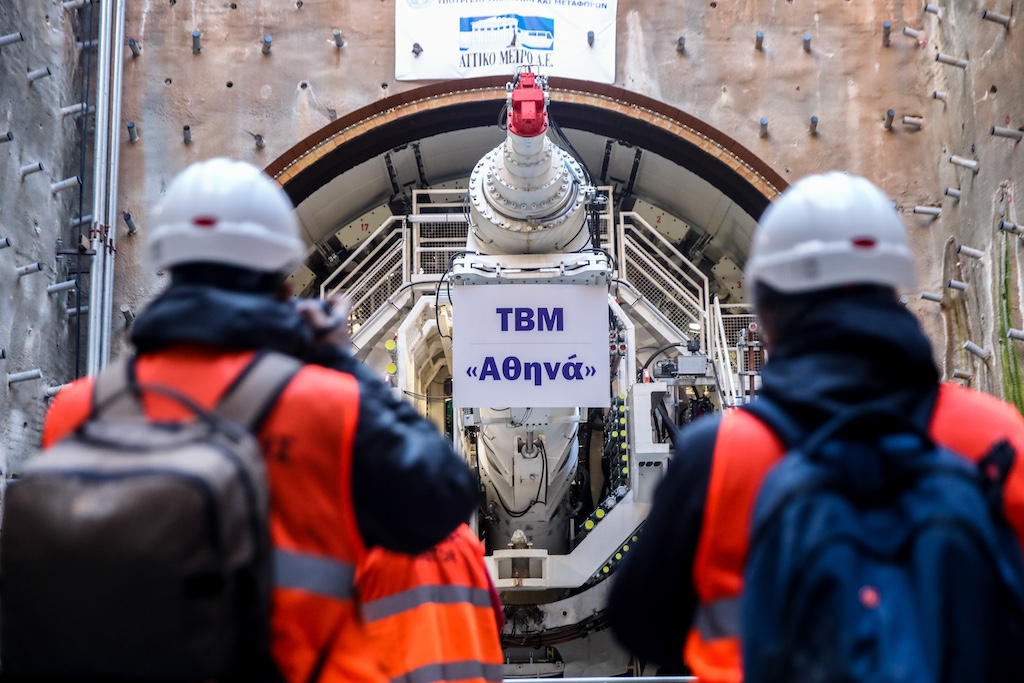
However, the published decisions of “Hellenic Metro” point exactly in the opposite direction of flexibility in controlling the work actually carried out.
Specifically:
- The contract for the construction of the new Line 4 was signed in June 2021 with a price of 1.28 billion euros and a completion date of 8 years, i.e., June 2029.
- In July 2021, the construction consortium AVAX-ALSTOM-GHELLA received the advance payment of 10% of the amount and was supposed to start work. According to the law, it should be sent every month to Hellenic Metro accounting data in order to certify the works performed with the advance money. The advance payment is not supposed to be used for other purposes for the benefit of the contractor but for the initial costs of setting up the construction sites and supplying materials.
- However, as it follows from a decision of Hellenic Metro published in Diavgeia, the first certification of works (formally the 2nd one as the 1st one concerned the advance payment) is published in August 2022 and concerns work amounting to only 3.4 million euros, 14 months from the signing of the contract.
- However, at the time, the government not only did not seem to be concerned about the development of this particular project but was taking measures to help contractors in general due to the energy crisis. Specifically, in June 2022 a night amendment to Law 4938 was made, under which developers will receive a 5% bonus if they declare that despite the energy crisis there will be no delay in the delivery of the project they have undertaken. Thus, the consortium received an “on-time delivery” premium of €57 million in early 2023.
- However, in the Diavgeia Reports of the Greek Metro, certifications for work that did not imply timely delivery continued to be published. In September 2022, work worth 9.5 million euros was certified, in November 1.46 million euros, and in December 2.56 million euros. The amounts certified remained meager in the first semester of 2023. In February, it was 1.33 million, in March 1.56 million, in April 2.41 million, in May 3.7 million, and in June 5.48 million.
- In the second half of 2023, the picture worsened as Hellenic Metro started to cut significant amounts from the certifications requested by the construction consortium. In August, it certified 2.5 million in work while the contractor was asking for 3.63 million. In September 3.3 million was certified (against a request of 4.8) and in October 2.5 million, half of the 5.09 million requested by AVAX-ALSTOM-GHELLA.
- In the latest certification in November 2023, the Greek Metro didn’t just reduce the requirements (from 6.6 million to 3.2 million) but also included some reasoning within the published decision.
As stated, “regarding the reduction of compensation for on-site material expenses (precast tunnel rings of TBM), this is applied until the issuance of the Decision on the relevant Contractor’s objection for the compensation of the “on-site” materials of the project”.
The consortium is indeed required to submit an objection to the Minister of Infrastructure and Transport within 15 days, otherwise “any appeal to the Administrative Court of Appeal will be rejected as inadmissible.
- This certification act ends with one formulation, which is included in all previous acts. It says, that is, Hellenic Metro, that “as the advance payment is granted under the provisions of article 150 of Law 4412/2016, case a) of para. 3, the Contractor is obliged to provide the service at the end of each month with a summary statement of the payments made against the advance payment as well as the remaining balance, indicating the bank account in which it is deposited.” It concludes with: “Please submit your payment request accompanied by the required supporting documentation.”
- According to reliable information, however, the appeal of Hellenic Metro to submit the request for payment along with “the required supporting documents” has not caused any emotion on the part of the contractor. In other words, these meagre (compared to the total price of EUR 1.28 billion) amounts, which do not exceed 43 million altogether, have been certified uncontrollably without the contractor submitting the necessary supporting documents.
- According to the same information, the construction consortium submits from the beginning of the certifications simple lists of the amounts paid for various expenses (salaries, insurance, third-party expenses, supply of machinery, etc.), while Hellenic Metro asks for them to be accompanied by supporting documents. However, despite the refusal to submit the documents, the certification of work continues, even with some cuts.
DataJournalists highlighted in a recent article the problem of the huge amounts of backlogged contracts that large construction companies advertise to show off their bright prospects and boost their stock market values.
The largest backlog corresponds to the GEK-TERNA group and in our publication, we revealed one of the ways in which this has arisen. Namely, we published a decision of the Hellenic Single Public Procurement Authority – (HSPPA) that annulled an act of the Waste Management Authority of Central Macedonia for a 250-million project near Thessaloniki.
The relevant article: Public Procurement Authority denounces “unprecedented distortion of competition” in €250 million project of TERNA
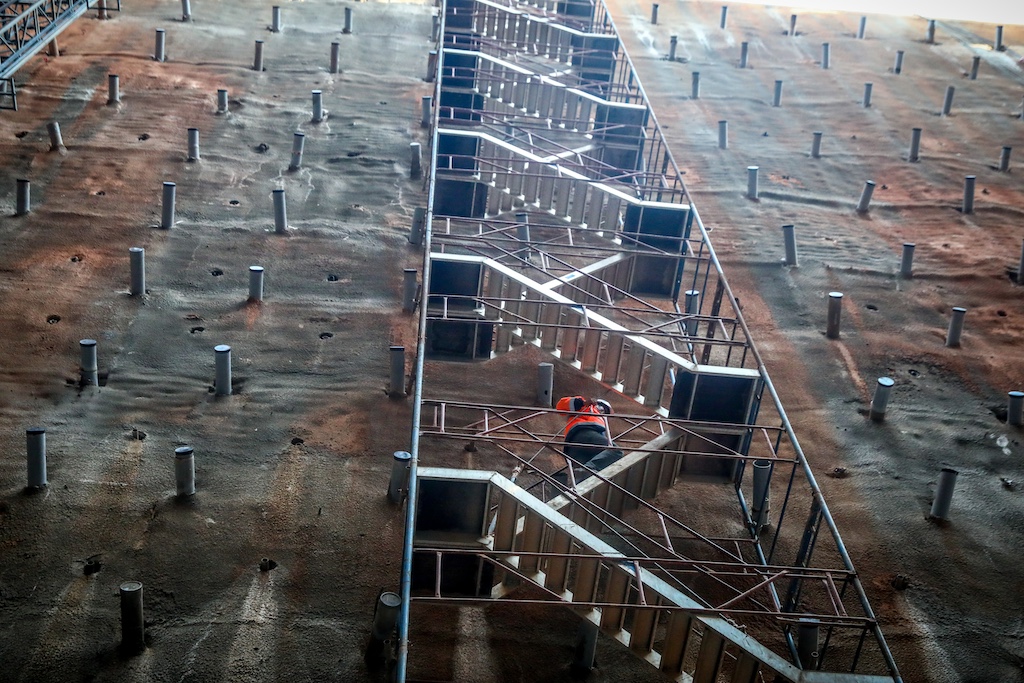
The Authority proceeded with the annulment by admitting that there were practices that favored GEK-TERNA through unfair competition to the detriment of the other companies bidding for the project. A few days after the DataJournalists publication, the management of the Regional Association of Solid Waste Management Agencies of Central Macedonia announced that it would appeal to the Council of State to annul the decision of the HSPPA.
At the same time of the revelations in favor of GEK-TERNA, the Green Deal conference on large projects and their resilience was taking place in Athens. It was when Nikos Tachiaos was asked and stated his opposition to imposing limits on the uncompleted contracts. However, he added that beyond the unfinished aspect, we should also consider the… executed part, citing the project of Line 4 of the Metro in Athens. He essentially mentioned that if the contractor requests an extension in completing the project, they should return the 57-million-euro bonus. However, what Mr. Tachiaos did not mention was:
- That Hellenic Metro, of which he was chairman until last June and now supervising minister, gave and continues to give certifications for work carried out against advance payment.
- That within the construction consortium, an extension of a partial deadline has already been approved for 300 days, nearly a year, for the delivery of the Tunnel Boring Machine (TBM) and the commencement of underground excavations in the tunnels that were supposed to have started in early 2023.
- That a recent extension of 450 days has been granted until the end of 2024 for the preparatory works carried out at the locations where the 15 stations of Line 4 and the ventilation shafts will be located. In fact, to grant this extension, the reference isn’t solely made to the widely advertised delay due to reactions at Exarchia Square. It also refers to the lawsuit from the Patera Foundation regarding the destruction of greenery in Rizari Park (where a second metro station, Evangelismos, is planned), as well as issues that have arisen at the Goudi station, as an underground pipeline of a branch of the confined Ilissos River passes beneath it.”
However, if the main project continues at the same pace of certifying 43 million euros within 29 months (1.5 million per month), it would take approximately 68 years to complete it…

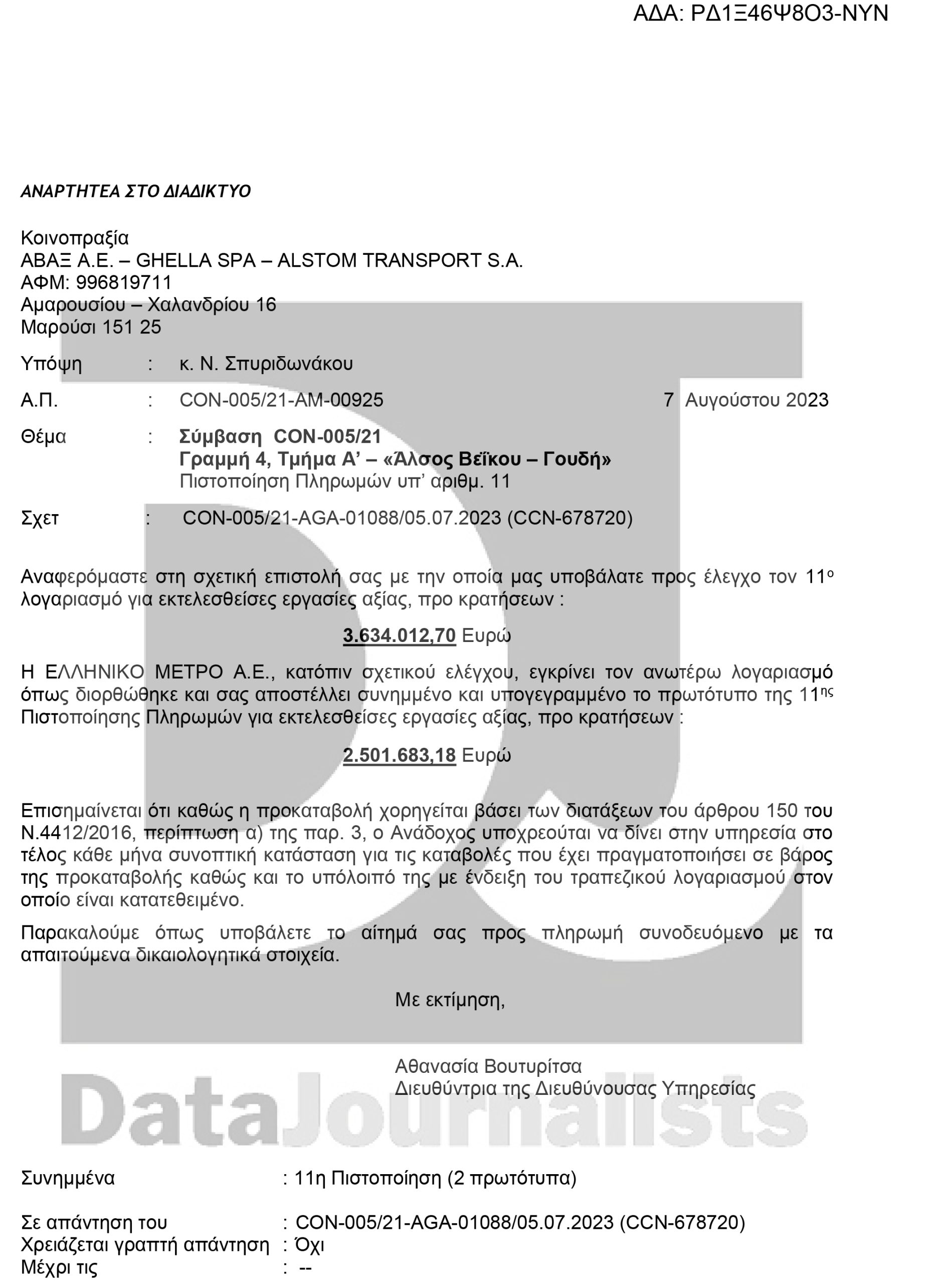
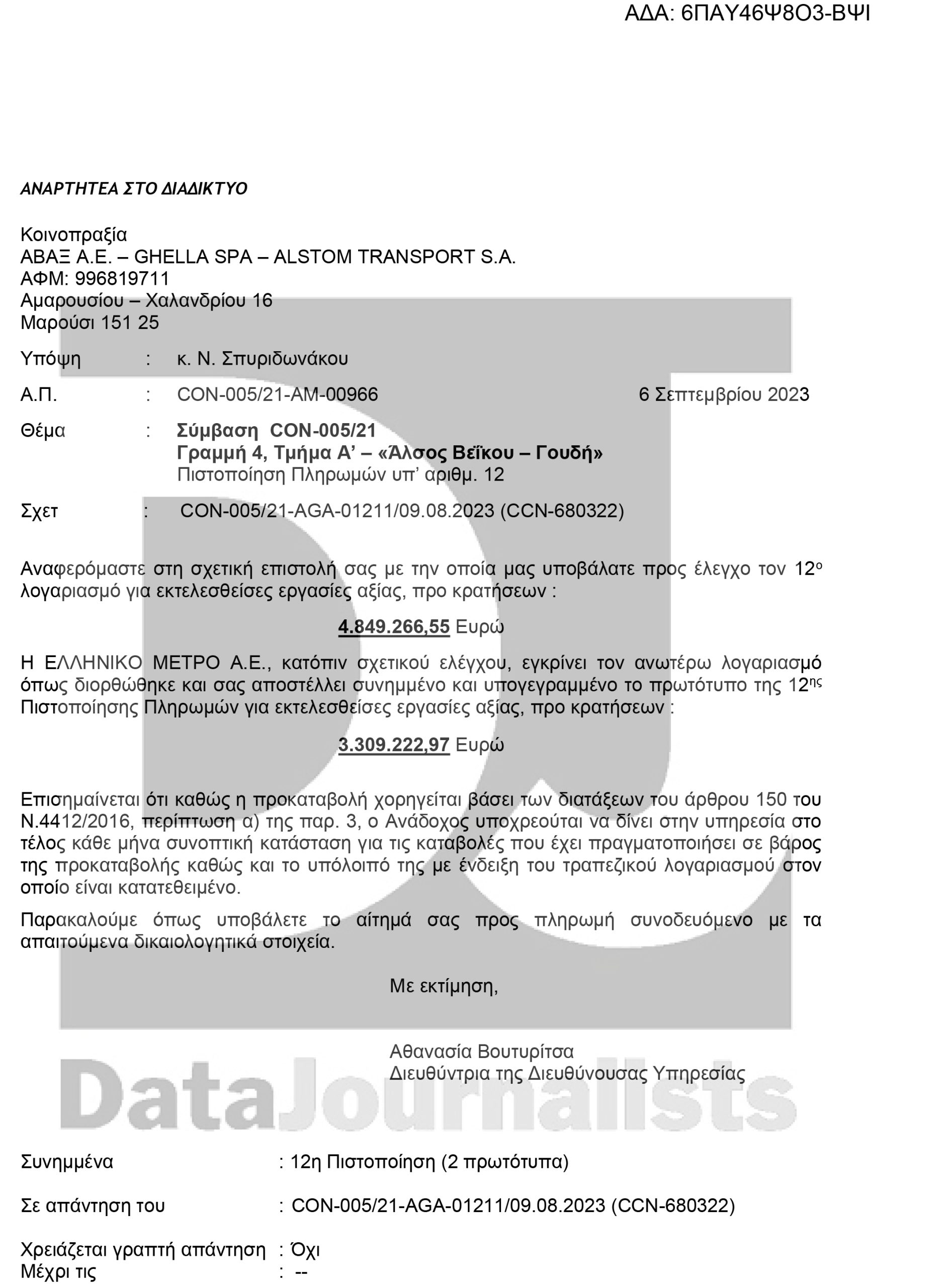
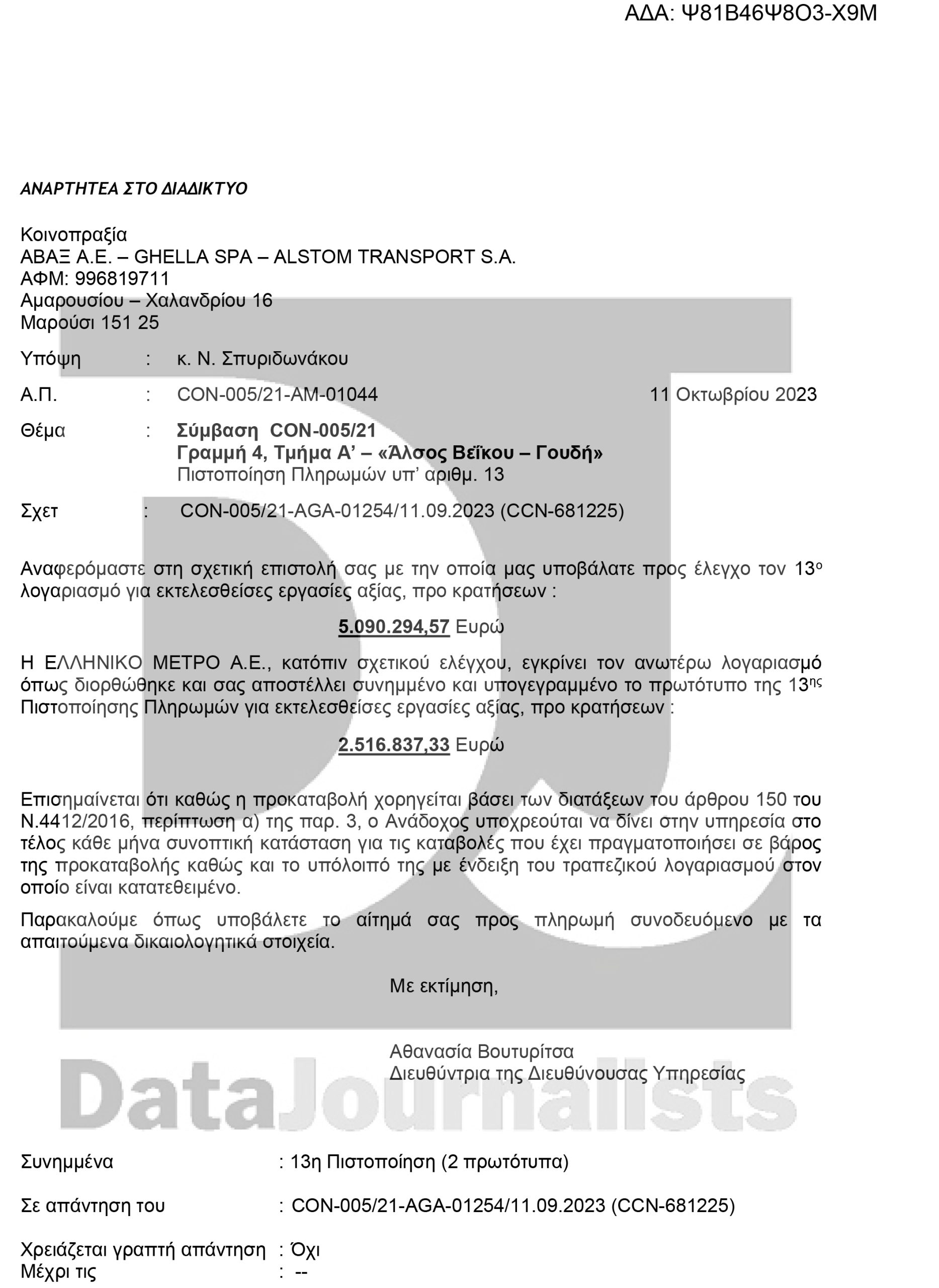
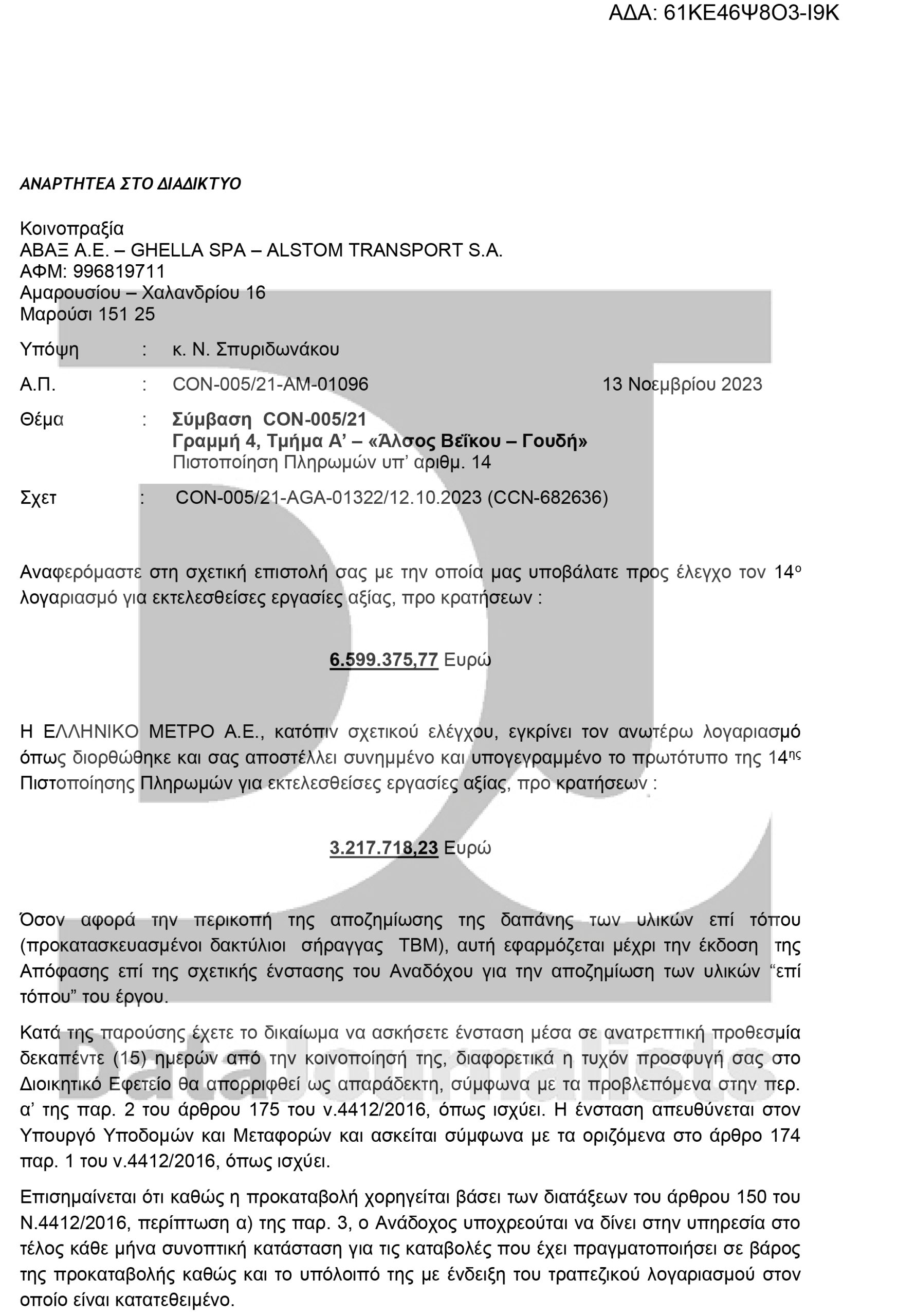








Discussion about this post